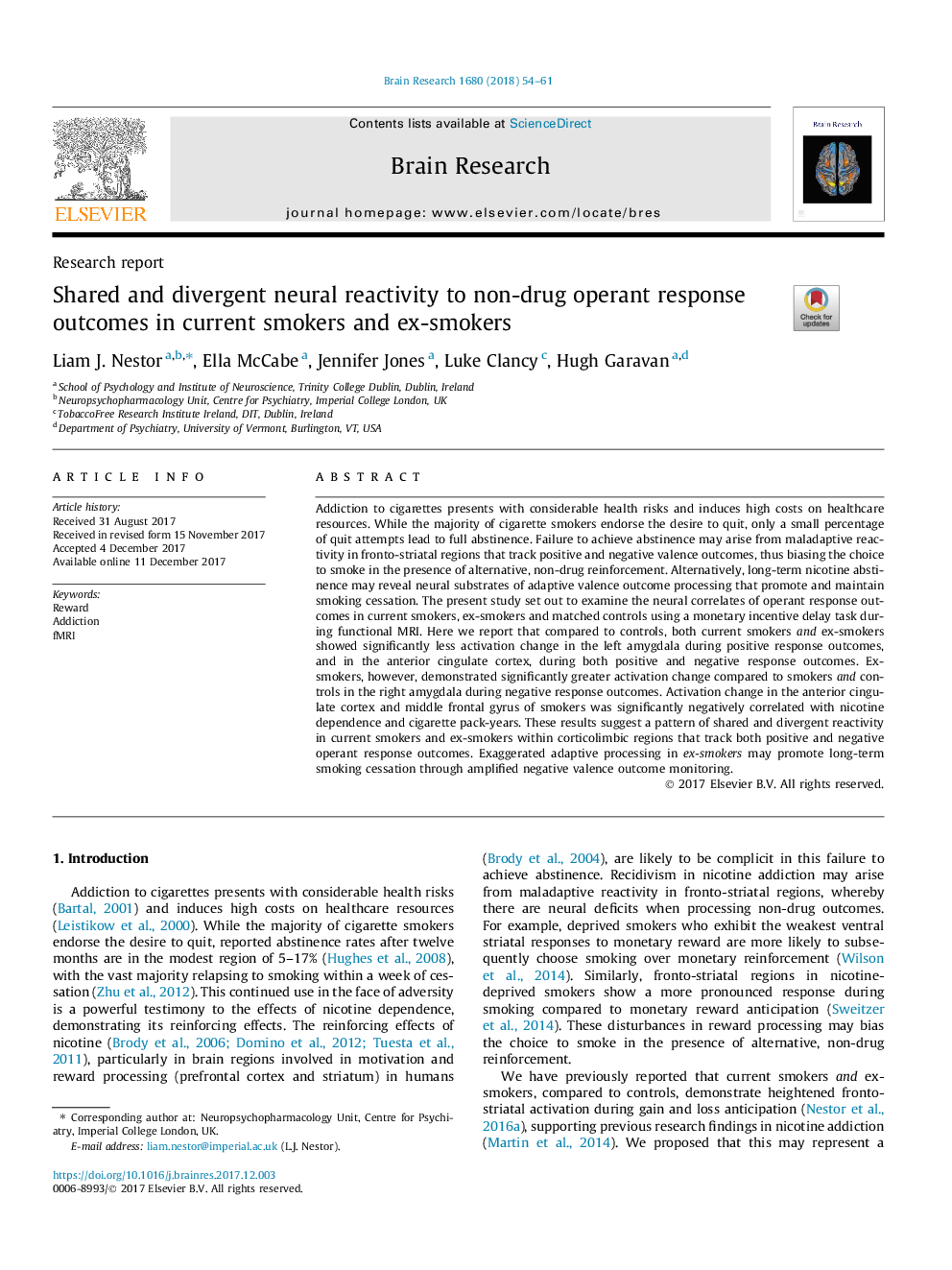| Article ID | Journal | Published Year | Pages | File Type |
|---|---|---|---|---|
| 8839911 | Brain Research | 2018 | 8 Pages |
Abstract
Addiction to cigarettes presents with considerable health risks and induces high costs on healthcare resources. While the majority of cigarette smokers endorse the desire to quit, only a small percentage of quit attempts lead to full abstinence. Failure to achieve abstinence may arise from maladaptive reactivity in fronto-striatal regions that track positive and negative valence outcomes, thus biasing the choice to smoke in the presence of alternative, non-drug reinforcement. Alternatively, long-term nicotine abstinence may reveal neural substrates of adaptive valence outcome processing that promote and maintain smoking cessation. The present study set out to examine the neural correlates of operant response outcomes in current smokers, ex-smokers and matched controls using a monetary incentive delay task during functional MRI. Here we report that compared to controls, both current smokers and ex-smokers showed significantly less activation change in the left amygdala during positive response outcomes, and in the anterior cingulate cortex, during both positive and negative response outcomes. Ex-smokers, however, demonstrated significantly greater activation change compared to smokers and controls in the right amygdala during negative response outcomes. Activation change in the anterior cingulate cortex and middle frontal gyrus of smokers was significantly negatively correlated with nicotine dependence and cigarette pack-years. These results suggest a pattern of shared and divergent reactivity in current smokers and ex-smokers within corticolimbic regions that track both positive and negative operant response outcomes. Exaggerated adaptive processing in ex-smokers may promote long-term smoking cessation through amplified negative valence outcome monitoring.
Related Topics
Life Sciences
Neuroscience
Neuroscience (General)
Authors
Liam J. Nestor, Ella McCabe, Jennifer Jones, Luke Clancy, Hugh Garavan,
